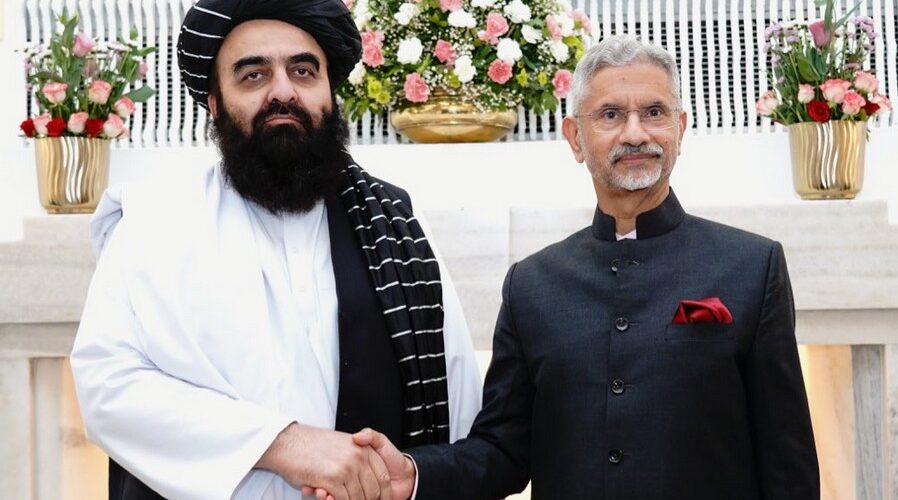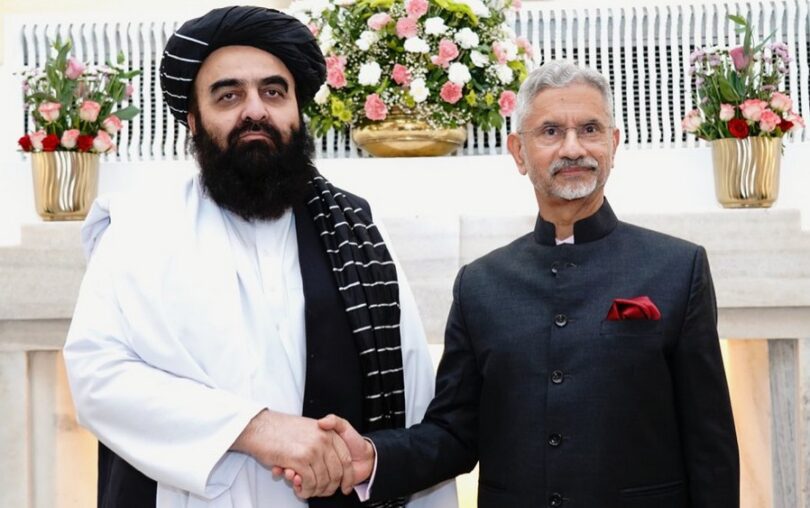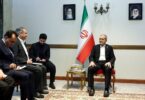Introduction
During the Taliban’s first regime which spanned from 1996- 2001, India supported the anti-Taliban Northern Alliance and regarded the Taliban as a Pakistan-backed threat to regional stability.
Post the U.S. invasion of Afghanistan in 2001 and the establishment of a democratic Afghan government, India stood as one of Afghanistan’s largest regional donors, investing over $3 billion in reconstruction projects and building strong relations with the Afghan.
After Taliban’s control of Kabul and US exit from Afghanistan in August 2021, India had to consider a diplomatic retreat—India evacuated its embassy and halted official contact. However, as the Taliban consolidated power and other regional actors, including China, Russia, and Iran, began engaging with Kabul, India modified and recalibrated its approach with regards to the Taliban.
It is imperative to note that the shift is not rooted in ideological alignment, but in strategic necessity for India, which relies on safeguarding Indian investments, preventing and countering terror threats and limiting the rival influence. India refrains from formal acknowledgement of the Taliban government, while the Taliban can be viewed as treading with cautious pragmatism in response.
Historical Background: From Isolation to Engagement
The 2021 Doha Dialogue
On 31 August 2021, India’s first official contact with the Taliban occurred in in Doha, Qatar. The Indian Ambassador Deepak Mittal met Taliban representative Sher Mohammad Abbas Stanekzai. The Indian Ministry of External Affairs (MEA) stated “Ambassador Mittal raised India’s concern that Afghanistan’s soil should not be used for anti-Indian activities and terrorism in any manner.” This early engagement displayed India’s attempt to secure counterterrorism assurances while maintaining diplomatic distance from Taliban.
Reopening Channels of Communication (2022)
On 2 June 2022, an Indian delegation led by Joint Secretary J.P. Singh visited Kabul to meet Taliban Foreign Minister Amir Khan Muttaqi. The Taliban summed the meeting as “a good beginning in ties between the two countries,” emphasizing trade and humanitarian cooperation.
Deepening Engagement: Diplomatic Developments in 2025
On 9 January 2025, the Indian Foreign Secretary Vikram Misri met Taliban Foreign Minister Muttaqi in Dubai. Following the meeting, the Taliban’s Foreign Ministry released a statement stressing that “in line with Afghanistan’s balanced and economy-focused foreign policy, the Islamic Emirate aims to strengthen political and economic ties with India as a significant regional and economic partner”.
This was viewed as a turning point, as Taliban made an official recognition of India as an important regional actor. Concurrently, India projected its willingness to resume development cooperation, specifically in healthcare and infrastructure.
In October 2025, Muttaqi visited New Delhi under a U.N.-approved travel waiver. During this visit, India announced the reopening of its embassy in Kabul, upgrading its “technical mission” to a diplomatic mission. Muttaqi stated: “India will raise its technical mission to a diplomatic mission in Kabul, and our diplomats will also come here … We hope Afghanistan and India will increase their engagement”.

He further assured that “Afghan soil would not be allowed to be used against any country”. In response, the Indian External Affairs Minister S. Jaishankar remarked: “Closer cooperation between us contributes to your national development, as well as regional stability and resilience”.
During the same October 2025 visit, Taliban minister Muttaqi faced questions on the exclusion of women from schools. He responded: “We have 10 million students attending schools … 2.8 million are women and girls … In religious seminaries, this educational opportunity is available … The answer is that there are certain limitations in specific parts, but that does not mean that we oppose education.”
Though viewed with scepticism by critics, the statement shows Taliban’s comprehension for a need of a moderated narrative in diplomatic settings in regard to optics or perception.
However, the statements issued by both nations reflected a convergence of interests—India’s pursuit of regional stability and Afghanistan’s requirement for legitimacy.
This can be noted as India’s re entry into Afghanistan’s diplomatic space, with Taliban’s optimistic approach toward India.
Between 11 - 12 October 2025, the Afghan Taliban launched series of attacks on Pakistani military posts along the Afghanistan-Pakistan border as a response to the Pakistani airstrikes. Following the attack, the Taliban’s Ministry of Defence announced the conclusion of their operation. However, Pakistan declined Taliban’s ceasefire declaration and retaliated. Several reports surfaced of Pakistan’s drone strike in Afghanistan’s Kandahar and Helmand provinces. Satellite imagery of a Taliban military compound in Spin Boldak revealed considerable damage during the clashes.
Heavy clashes perpetuated on 15 October, with both sides accusing the other of initiating the violence. Possibly taking a cue from India’s operation Sindoor, Pakistan announced precision airstrikes inside Afghanistan, which it claimed was to target militant safe havens. Taliban has denied reports of new airstrikes in Kabul, attributing the explosions to an oil tanker blast. A temporary ceasefire was announced by both the countries following the airstrikes in Kabul
On 16 October 2025, the Ministry of External Affairs of India, via spokesperson Randhir Jaiswal, issued a pointed public statement: “We are closely monitoring the situation. Pakistan hosts terrorist organisations and sponsors terrorist activities. It is an old practice of Pakistan to blame its neighbours for its own internal failures. Pakistan is infuriated with Afghanistan exercising sovereignty over its own territories. And India remains fully committed to the sovereignty, territorial integrity, and independence of Afghanistan.”
This marked a more aggressive rhetorical underscoring India’s alignment with Kabul on sovereignty issues.
India’s Strategic Calculations
Security and Counterterrorism
India’s foremost concern like China, remains the prevention of Afghanistan from becoming a haven for anti-India terrorist outfits. The Taliban’s repeated assurances that Afghan soil “will not be used against any country” have been central to India’s cautious and recalibrated engagement.
Exploiting the Taliban–Pakistan Rift
Taliban and Pakistan’s growing hostility towards one another, specifically over Islamabad’s blame games over Kabul providing safe haven to the Tehrik-i-Taliban Pakistan (TTP) and other anti Pakistan outfits has created an opening for India. By engaging Kabul directly, New Delhi can limit Pakistan’s influence and reshape regional power dynamics.
Economic and Connectivity Interests
India has invested over USD 3 billion in Afghanistan since 2001, funding projects such as the Salma Dam and the Afghan Parliament building. India can ensure the protection of these assets while facilitating new connectivity routes through Iran’s Chabahar Port by renewing its engagement with Taliban, providing access to Central Asia without bifurcating Pakistan.
Realpolitik and Regional Balancing
Engaging with Taliban also aligns with India’s strategy of countering Chinese influence in the region. Maintaining diplomatic influence in Kabul will allow India to balance Beijing’s interests in Afghanistan’s mineral and infrastructure sectors.
The Taliban’s Response to India: Pragmatism Over Ideology
The Taliban’s diplomatic approach towards India shows an intentional effort to diversify partnerships and reduce dependency on Pakistan. Three themes emerge from their conduct: (1) balanced and economy-oriented foreign policy, (2) assurances of non-hostility, and (3) acknowledgement of India as a legitimate partner. The Taliban’s public distancing from Pakistan—coupled with statements like “Afghan soil will not be used against any country”—signals an assertion of sovereignty and strategic autonomy.
Unlike during its first rule, the Taliban’s response to India’s outreach this time has been practical and politically calculated.
The Taliban government has consistently expressed a desire to strengthen ties with India. While its Foreign Ministry has repeatedly stated that they welcome India’s assistance in reconstruction, trade, and development.
Taliban spokespersons in the past have also referred to India as a “key regional player” and appreciated its humanitarian aid, emphasizing that the Taliban wants “positive relations based on mutual respect.”
This marks a major shift from its first regime in late 1990s, when the Taliban’s alliance with Pakistan made it hostile to India.
India has supplied thousands of tonnes of wheat, medical aid, and COVID-19 vaccines to Afghanistan since 2021, routed mainly through Iran.
The Taliban has also sought India’s participation in trade and investment projects, which included the resumption of air cargo links that existed prior to 2021. Afghan trade officials have also encouraged Indian businesses to explore opportunities in mining, pharmaceuticals, and agriculture.
According to reports, Taliban leaders have been careful to distance themselves from anti-India militant groups. Although this may seem dubious, the group has repeatedly asserted that it will not allow any outfit to use Afghan soil for activities against India.
Perhaps the most significant development is in the Taliban’s determination to assert strategic independence from Pakistan. Frustrated with Islamabad’s cross-border skirmishes and accusations, the Taliban has sought to diversify its foreign relations — courting China, Russia, Iran, and India alike.
By engaging with India, the Taliban denounces Pakistan’s leverage in Kabul while projecting it as a subordinate power.
For Pakistan, this changing landscape signals diminishing leverage and growing isolation in regional affairs. These developments represent a serious geopolitical setback for Islamabad.
More on India – Afghanistan relations:
Between Partnership and Antagonism: Pakistan–Taliban Relations since 2021: https://www.thestrategicperspective.org/between-partnership-and-antagonism-pakistan-taliban-relations-since-2021/
Policy Analysis: Pakistan–Taliban Relations and the October 2025 Ceasefire — Strategic Fracture or Diplomatic Reset? https://www.thestrategicperspective.org/policy-analysis-pakistan-taliban-relations-and-the-october-2025-ceasefire-strategic-failure-or-diplomatic-reset/
US-Taliban Scrimmage over the Afghan Bagram Air base: https://www.thestrategicperspective.org/us-taliban-scrimmage-over-the-afghan-bagram-air-base/
Zangnan: between the Chinese Dragon and the Indian Lion: https://www.thestrategicperspective.org/zangnan-between-the-chinese-dragon-and-the-indian-lion/
India-Afghanistan Reconnect: https://www.thestrategicperspective.org/india-afghanistan-reconnect/
India sends fresh aid to Afghanistan via Chabahar: https://www.thestrategicperspective.org/india-sends-fresh-aid-to-afghanistan-via-chabahar/










